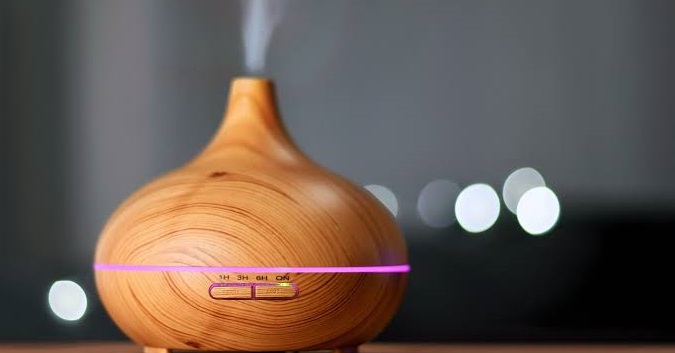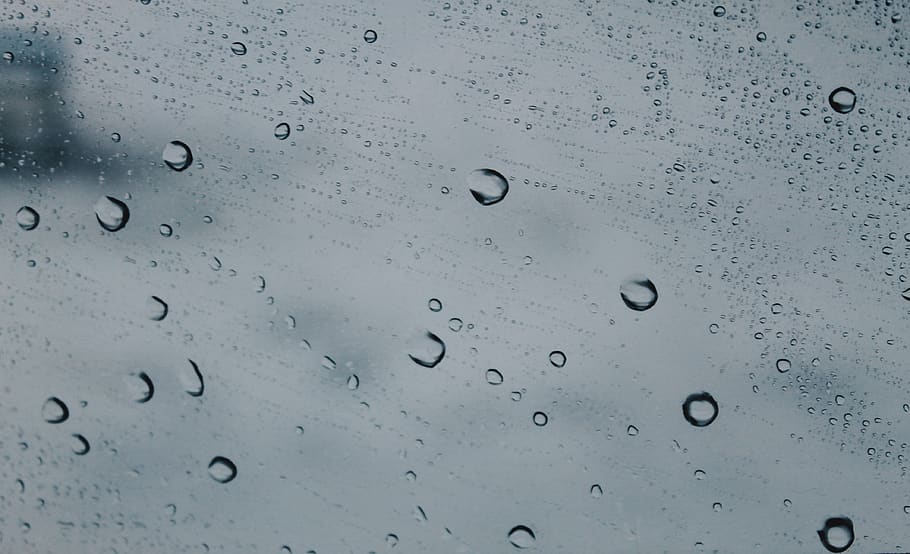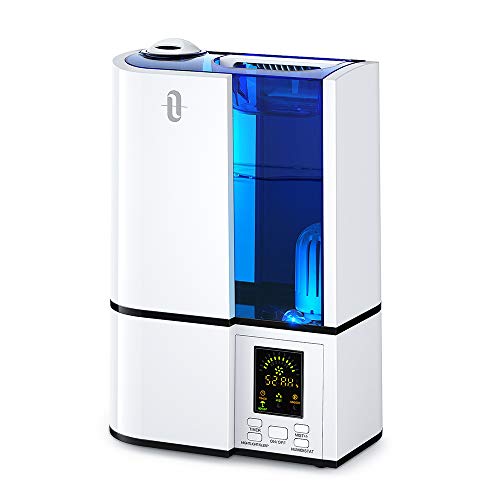A humidifier is a device that increases the moisture in its immediate atmosphere. When you notice the air outside feels different from the indoor air, it likely a difference in the humidity levels. You often notice it when it affects your comfort and that happens when the humidity is either too high or too low. The answer to what a humidifier does is at the core of what you’re going to learn from the post.

When you’re outside in the rain or in a hot bath with steam up in the air, you’re in high humidity. On the other hand, if you’re outside during the winter months where the air is devoid of moisture, you’re experiencing low air humidity.
In this post, you will learn what humidity is and how it affects us. We will also tell you why you need a humidifier and the different types there are.
By the time you’re done, you will know what a humidifier does and how you can choose an ideal one for your home. Without further ado, let’s get right into it.
Table of Contents
How Do Humidity Levels Affect Us?
Humidity is the term that refers to the amount of moisture in the air. For us humans to be comfortable, we require a certain level of humidity. Too high or too low and it becomes unfavorable.
The humidity levels have a lot to do with the temperature of the air. Warmer airs hold more moisture and vice versa.

Let’s make it more relatable. During Summer, we feel the heat and sweat it out. The reason the sweat stays longer on our skin is because the warm air is already holding moisture (high humidity). This reduces the chances of your sweat evaporating and makes you even hotter.
On the other hand, during colder days, the air is dry and holds little moisture (low humidity). This causes the moisture on our skin to evaporate faster and causes us to feel cold and experience dry skin.
To find comfort, we try to balance out the humidity in our favor. When it’s sunny outside, you dash indoors where there is an air conditioner. If it has been on for a while, you instantly feel the relief. What happened is that you just moved from a location with high humidity to one with low humidity. The air indoors is cooler and the sweat on your body will evaporate in minutes. Hello, comfort!
- The only purifying fan to clean a whole room properly
- Intelligently purifies and cools you.
- Dyson technology helps create a cleaner, healthier home - Our vacuums and purifiers are scientifically proven to capture particles as small as allergens and bacteria.
- 360° filtration system uses activated carbon to remove gases and odors and a HEPA filter to capture 99.97% pollutants as small as 0.3 microns.
- Air Multiplier technology circulates purified air throughout the whole room
- Automatically senses and reacts to changes in air quality - then reports pollution in real time on LCD screen and on your Dyson Link app.***
- Energy Star Certified
- Choose between Fan mode for direct cooling with your choice of 0 to 350° oscillation and Backwards airflow mode to purify without cooling.
- Other product listings for non-authorized 3rd party sellers are not covered by official Dyson .
- Warning – unauthorized replacement filters are not tested or verified to perform at HEPA standard. Only authentic Dyson filters are recommended to ensure a sealed system and proper functioning of the machine. The official Dyson replacement filter can be found by searching B07HJFXFNL in the search bar.
Why Do You Need Air Humidifiers?
Comfort is the main reason for using a humidifier. It regulates the humidity levels in the indoor air (add moisture) to a point you find comfortable. If the humidity is too high you could get heat strokes, dehydration, and other symptoms of hyperthermia.
On the other hand, if it is too low, the dry air can be bad for nasal passages, eyes, cause dry skin, and can make you sick more often.
Beyond how it affects you, if the air is too dry for too long, it can affect other things in your home. The expensive wooden floors and furniture can warp and wall paint crack.
So, if you’ve been wondering if you need a humidifier in your home, there you go. Weigh your options and identify which will work best for you.
What Does a Humidifier Do?
Humidifiers have only one goal: to add moisture to the air. However, there are different technologies they adopt to regulate indoor humidity.
There’s a tank that holds cold water in them. The water goes through different processes depending on the type of humidifier it is (we’ll get to that later). Afterward, the water flows out of the humidifier into your home in the form of a cool air or warm mist to improve the air quality.
Types of Humidifiers
There are other manual ways you can increase the humidity in your home, such as placing wet towels in front of your heater duct. Humidifiers are more efficient as they serve their purpose mostly automatically.
There are different types of humidifiers based on the method they adopt to regulate indoor humidity. Some of them also have designs that let you set the humidity level you want. The ideal setting for comfort is somewhere between 45 to 50 percent.
Evaporative
This type is more traditional and uses a cloth, paper, or wick to pull water from the reservoir. A fan blows over it pushing moisture out into your home.
Evaporative humidifiers are self-regulating. This is so because as the humidity in your home increases, the rate at which the humidifier adds moisture to the air decreases to avoid moisture saturation.
Ultrasonic humidifier
This type uses a metal disc that vibrates at an ultrasonic frequency, as the name implies, to break water into a fine vapor. This is then distributed into the dry air.
Ultrasonic humidifiers work silently. It can also cause a deposit of fog.
Steam
A steam humidifier boils water and releases water vapor to add moisture to the air. One advantage of this type of humidifier is that the boiling kills water-borne bacteria. So, you can rest assured only clean water is flowing out of this mist humidifier. That way, it can significantly reduce the symptoms of your allergies
Impeller
In this type, a rotating disc throws distilled water towards a serrated diffuser. The diffuser then breaks down the water into mist and flows it out of the humidifier.
In this type, you will often see the mist flow out into the air.
There is also a type of air humidifier you can connect to your air ducts. That way, it can serve your entire home and stay out of sight. One great thing about these types of humidifiers is that they are quite affordable.
Choosing the Best Type of Humidifier for You
Each of the above types is best for certain conditions. For instance, the steam type is great for relieving allergies as it can prevent you from inhaling dust mites, for instance.
However, since it involves hot water, using a humidifier this type might not be a good idea with kids around. Moreover, they consume a lot of energy.
The ultrasonic and impeller designs will save a lot on energy costs. However, if the water you put in their reservoir contains bacteria, they will emit it into your home as is.
This is one way a humidifier can be bad for you, especially if you’re allergic. So, if you insist on using a humidifier of these types, make sure it is one of those that filter the water first.
Is it Safe to Leave a Humidifier on All Night?
Expert advice suggests that you should at least be aware of your reaction to humidity if you want to leave your humidifier on all night.
For instance, if the air is dry and the temperature is low, it might be a good idea to leave it on so it can add cool mist to the air. That way it will alleviate any ailment associated with low temperatures.
Conclusion
Now you know what a humidifier does and how it can help make your home feel more comfortable. The different types available can help you resolve your particular needs, such as allergy symptoms, and moisten the air in your home. Choose a type and the size that will serve the purpose you need it for.
We hope you found this information useful and it answers your questions. If so, kindly share it so others can benefit too. If you want more quality information about related devices and the quality of the air in your home, you can always check back with us. Thank you for your time.




